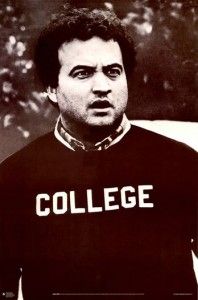Sen. GOP Blocks Cal State Confirmation
By JOHN HRABE
The Senate Republican Caucus scored a major victory for taxpayers Monday by blocking the confirmation of the embattled chairman of the California State University Board of Trustees, Herbert Carter. Senate President pro Tem Darrell Steinberg, D-Sacramento, told the Los Angeles Times that he couldn’t secure the two Republican votes that would have allowed Herbert Carter to serve a second term on the board.
“Today the Senate sent a clear message to the students, parents, and taxpayers that we deserve better from higher education than skyrocketing tuition, poor planning, and little oversight.,” said Sen. Joel Anderson, R-Santee, the first senator publicly to oppose Carter’s confirmation. “It doesn’t take a PhD to recognize when career bureaucrats are taking advantage of the CSU system. Since 1984, Herbert Carter has been near the center of every CSU pay hike scandal.”
Over the past several weeks, CalWatchdog has reported extensively on the Cal State confirmation battle. The Senate Rules Committee quietly voted Feb. 15 to reconfirm Gov. Jerry Brown’s nomination of Carter. Originally appointed to the board by Gov. Arnold Schwarzenegger, Carter has come under fire for approving high salaries for university presidents while raising student fees. Under Carter’s tenure, Cal State University has provided university presidents with an average base salary of more than $300,000 per year. Every Cal State president also receives up to $60,000 per year in a housing allowance and $12,000 per year for a car. According to data from the Cal State University chancellor’s office, the average total compensation package for college presidents is $372,000 per year.
Compensation Cap
In January, the Trustees responded to public criticism of these high salaries by approving a new compensation cap. CSU spokesman Erik Fallis recently told the Daily 49er, Cal State Long Beach’s student newspaper, “Carter is the one who recommended the change in policy.” The carefully worded cap allows the board to continue its controversial policy of supplementing executive pay through university foundations. CSU Chancellor Charles Reed, San Jose State’s Mohammad H. Qayoum, San Diego State’s Elliot Hirshman and Cal Poly San Luis Obispo’s Jeffrey Armstrong currently receive foundation bonuses ranging from $25,000 to $50,000 per year.
More than two decades ago, the California State University system was involved in a similar executive compensation scandal. Then and now, Herbert Carter played a central role in the controversy. In 1989-90, the Cal State University system quietly approved outrageous executive salaries during lean budget years, blamed the Legislature for its tuition increases, temporarily appeased angry legislators with phony solutions, then tricked the public with clever public relations gimmicks.
In March 1990, the San Francisco Chronicle’s Greg Lucas reported that Chancellor Ann Reynolds was grilled by legislators “over hefty salary increases she gave herself and 26 other top executives in the California State University system.” When State Senator Nicholas Petris, D-Oakland, tried to ask Reynolds about the salary hikes, “Reynolds stood up, took a seat in the audience and directed her second-in-command, Herbert Carter, to answer the questions.”
Bob Linscheid, the board’s vice chairman, will take over as Chairman.
Related Articles
UC president’s first speech shows doubts about her were warranted
In July, when the University of California Board of Regents announced the selection of Homeland Security Secretary Janet Napolitano as
Students Protest For Entitlements
Katy Grimes: On the west steps of the Capitol today a small group of college students protested the proposed cuts
Broad gets ammo in push to expand L.A. charter schools
As a huge fight draws near over charter schools in the Los Angeles Unified School District between the California Teachers





